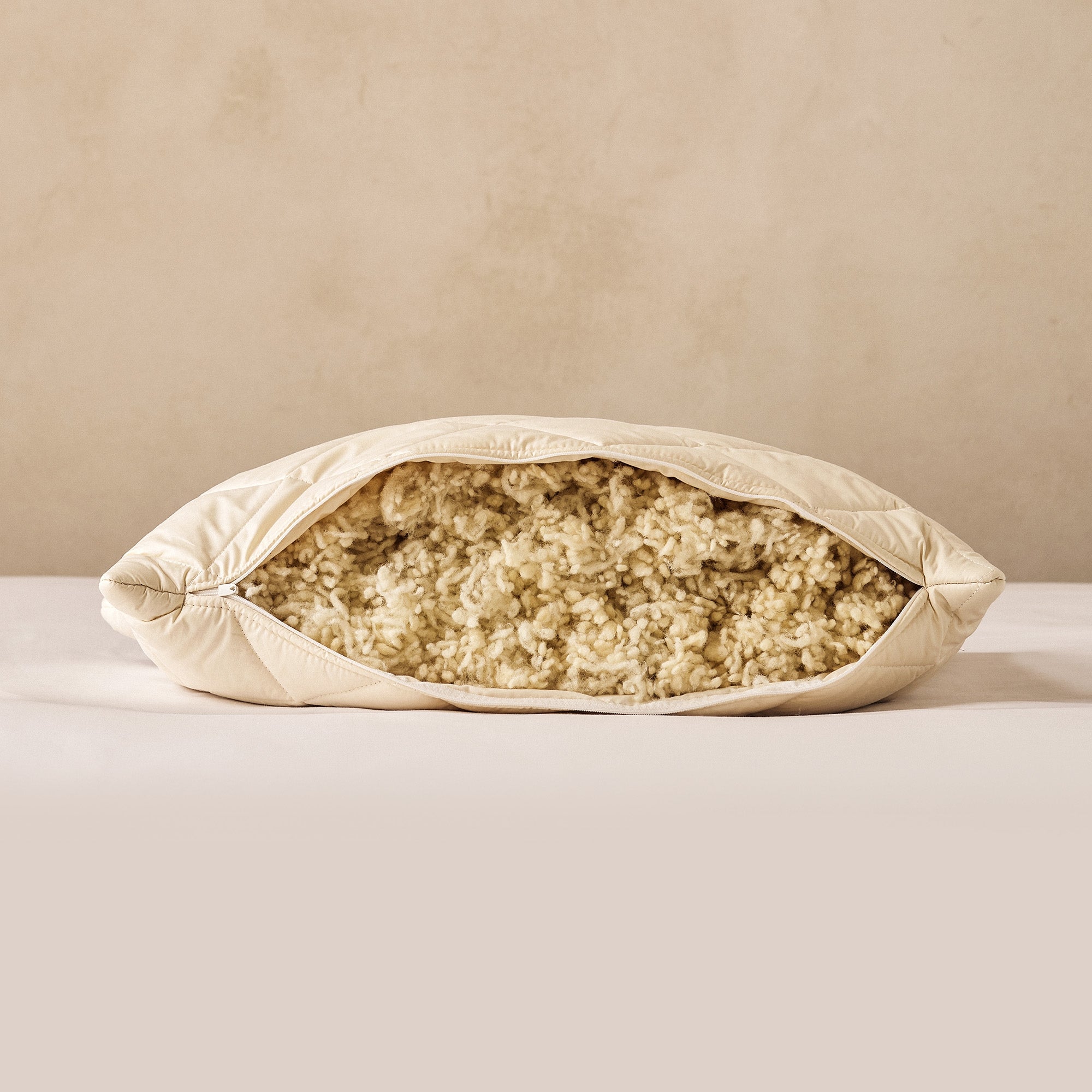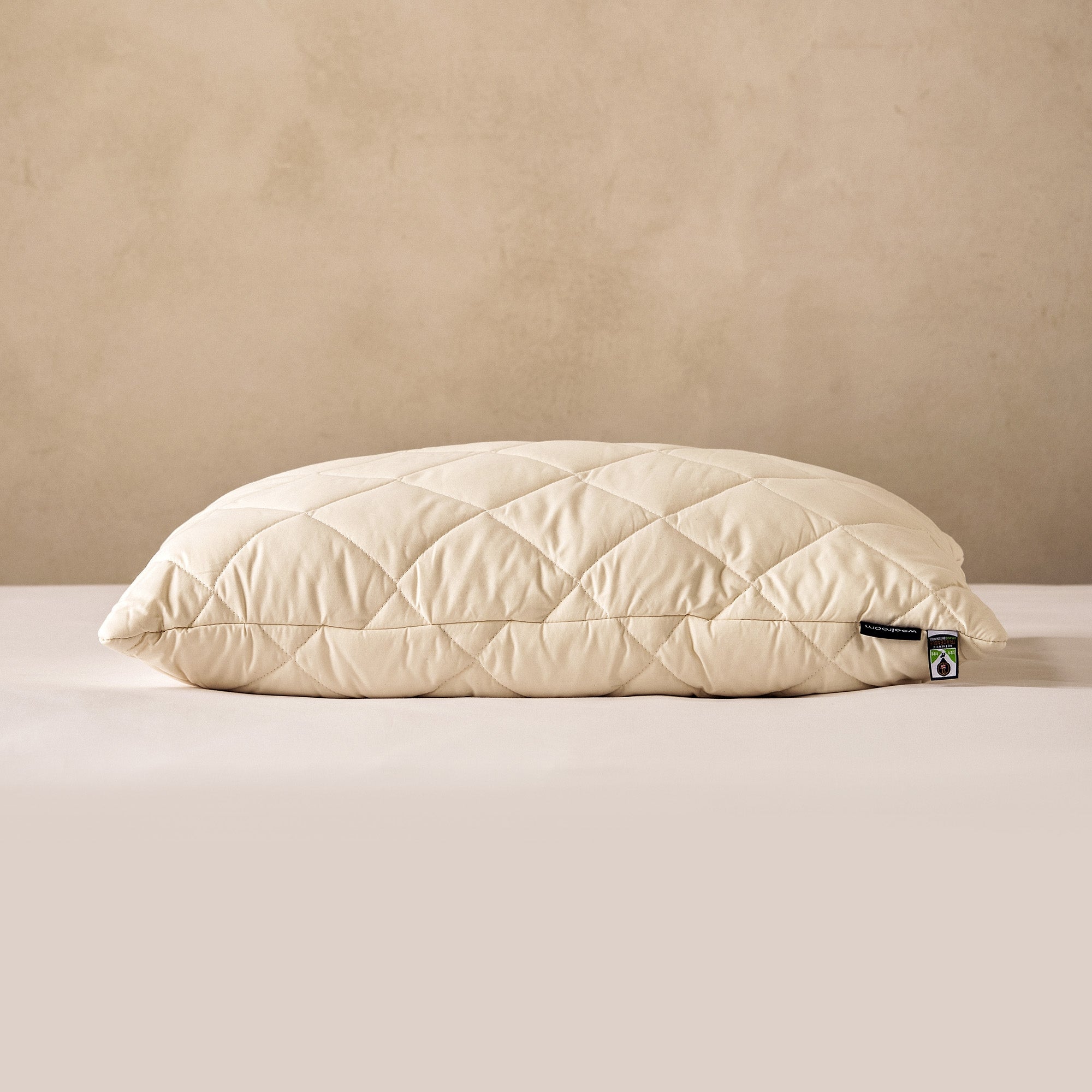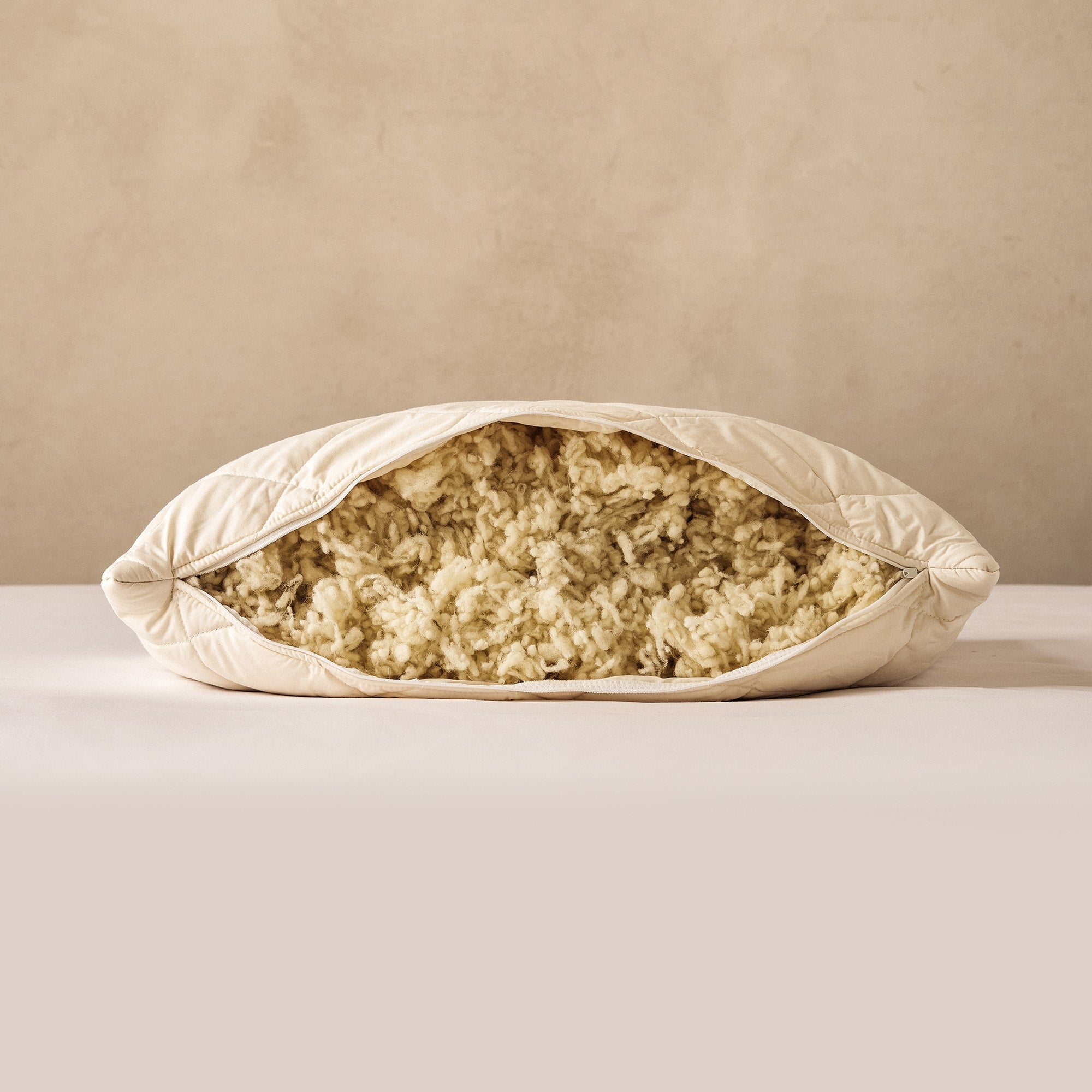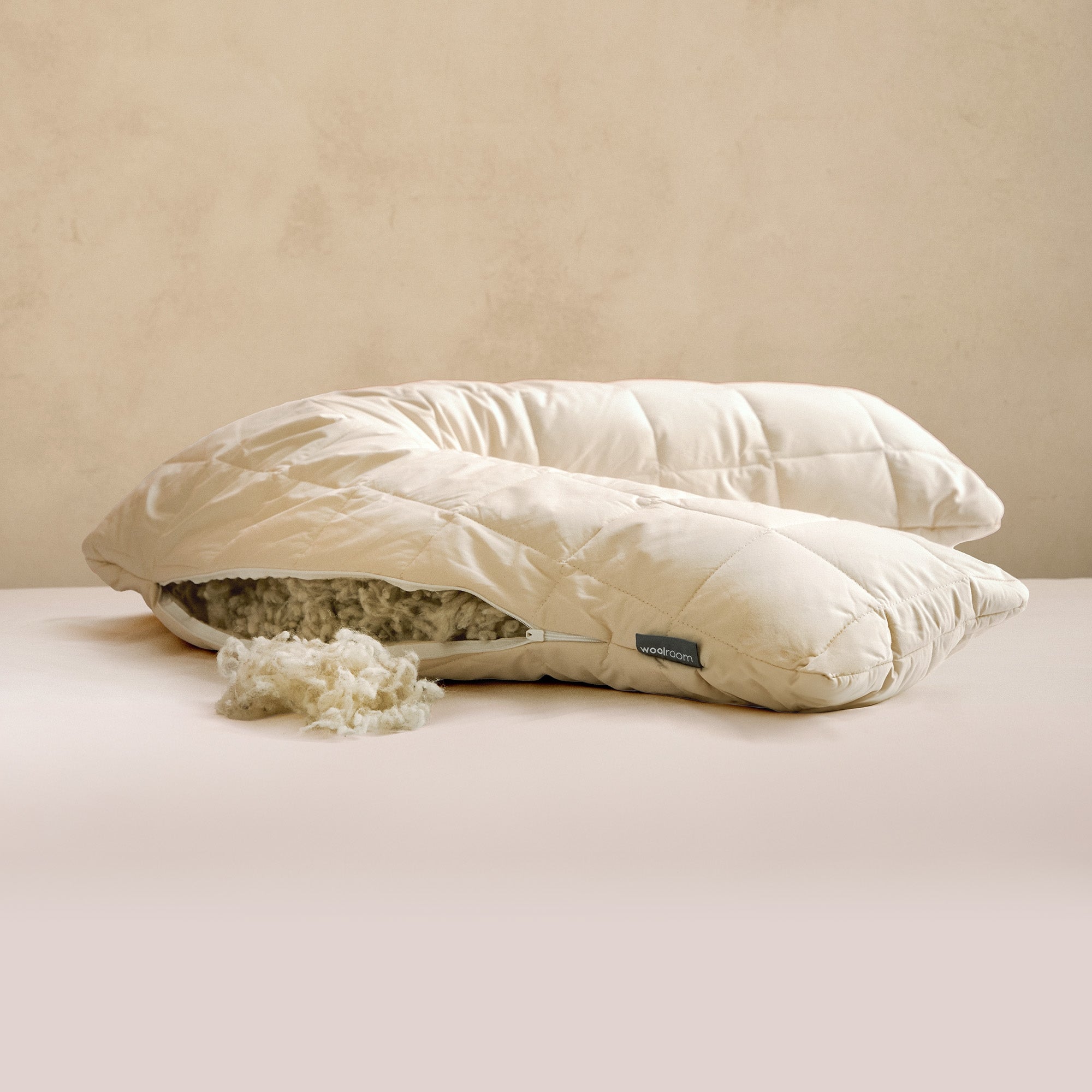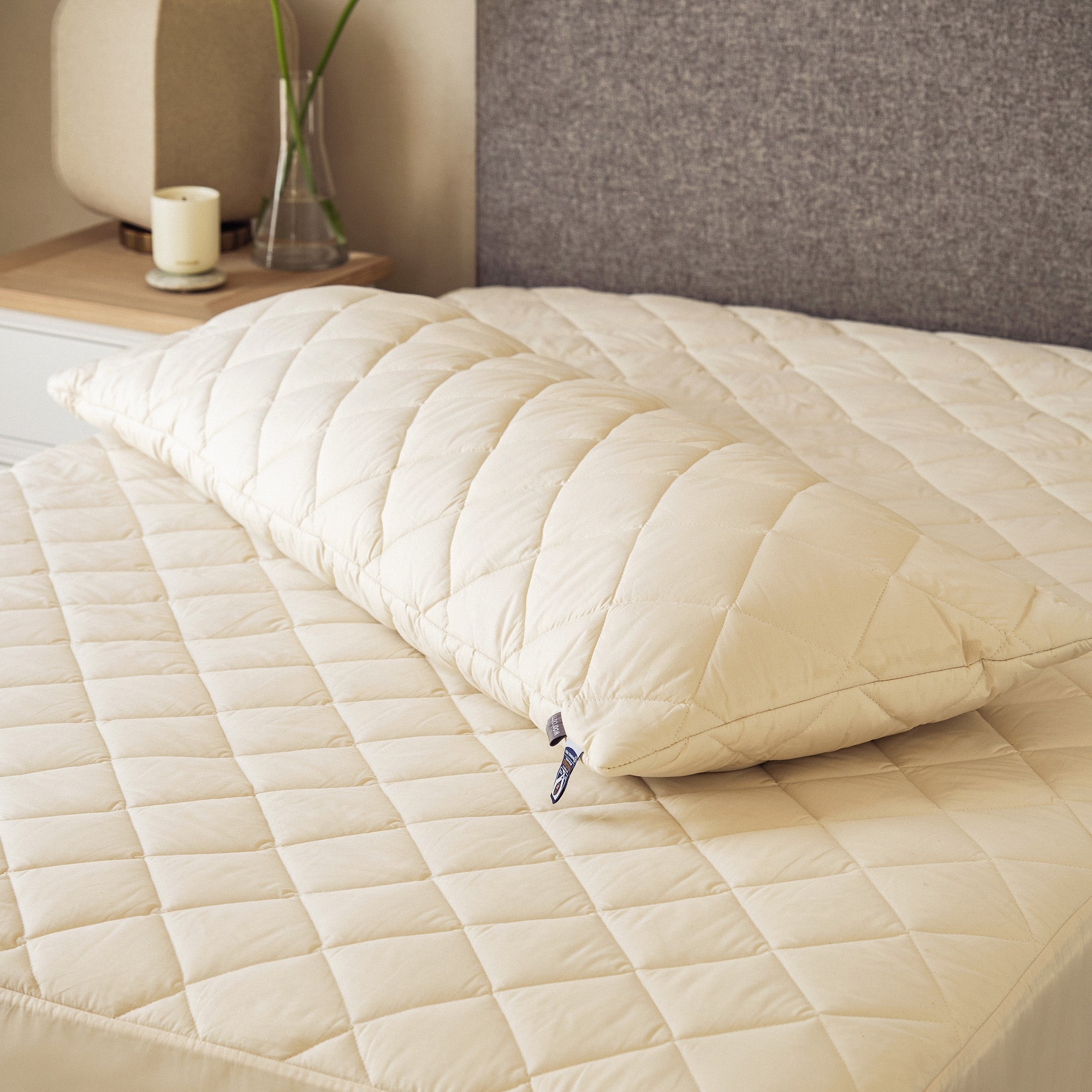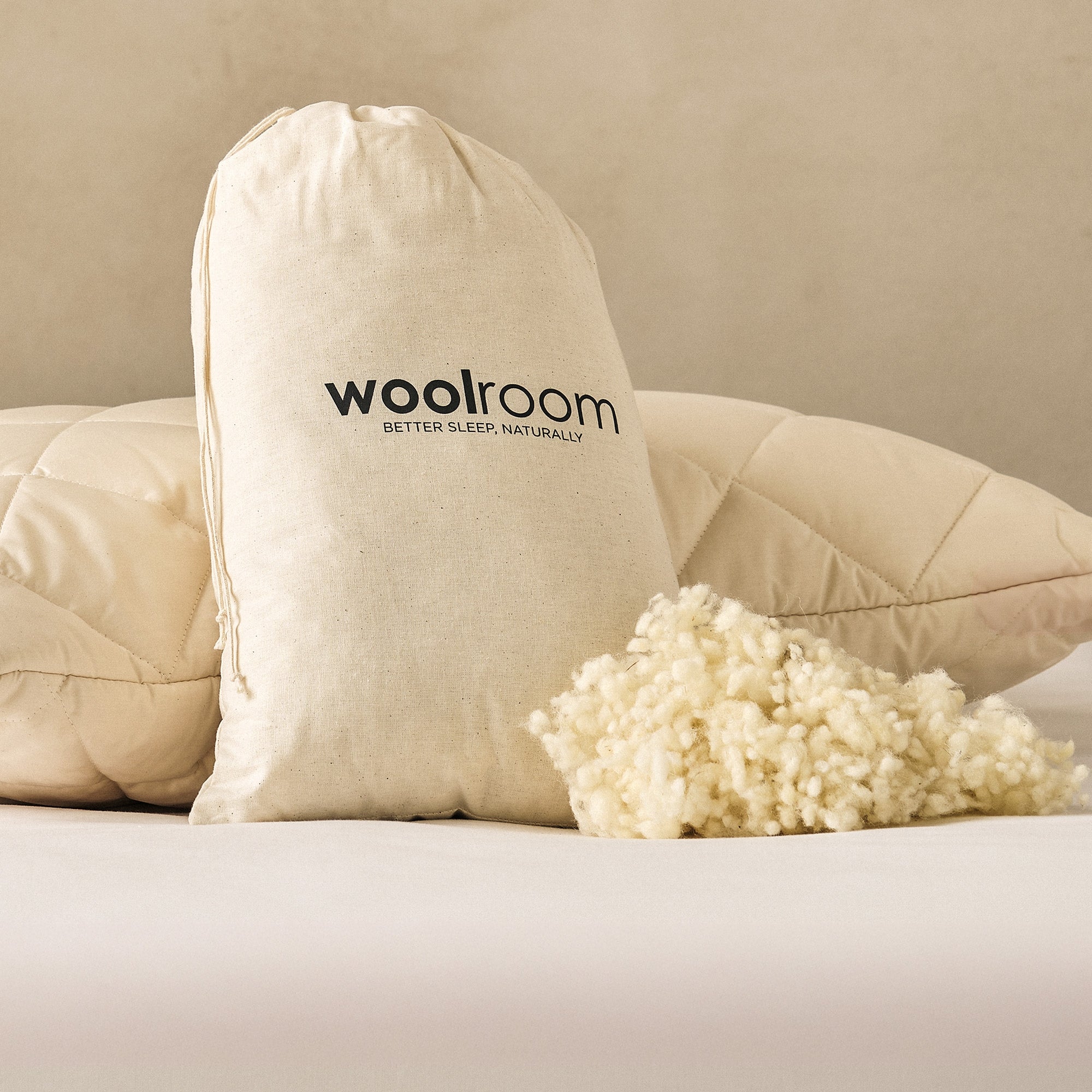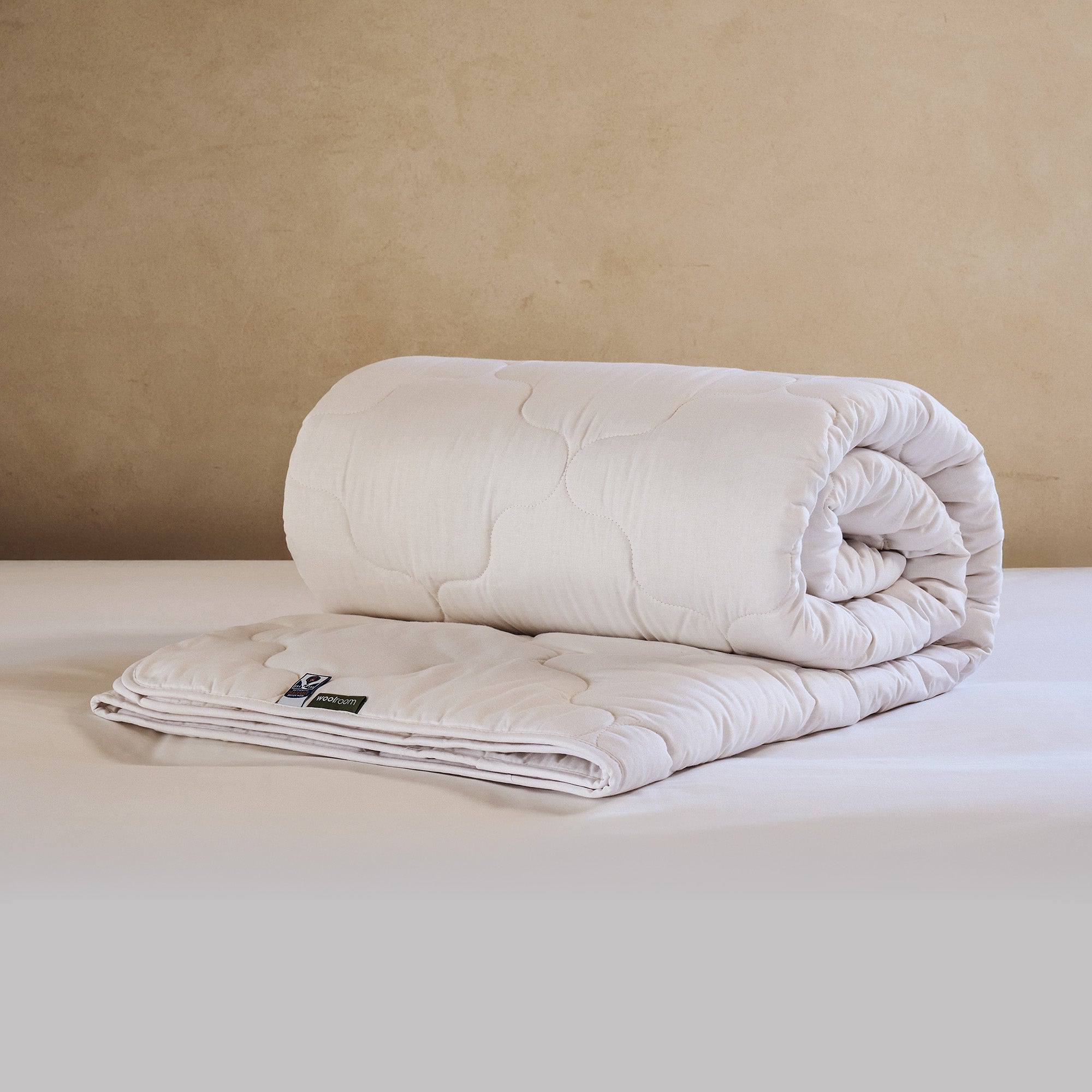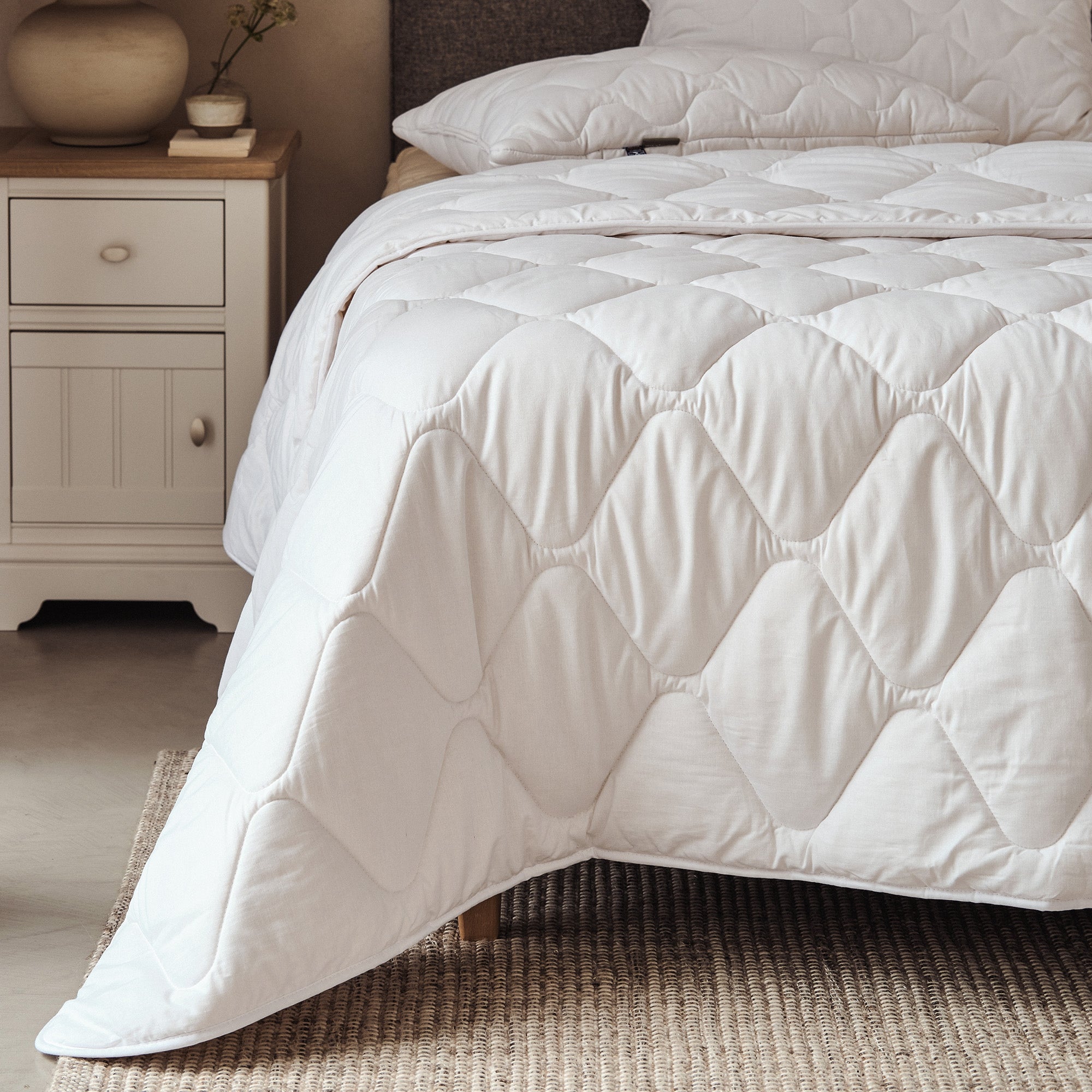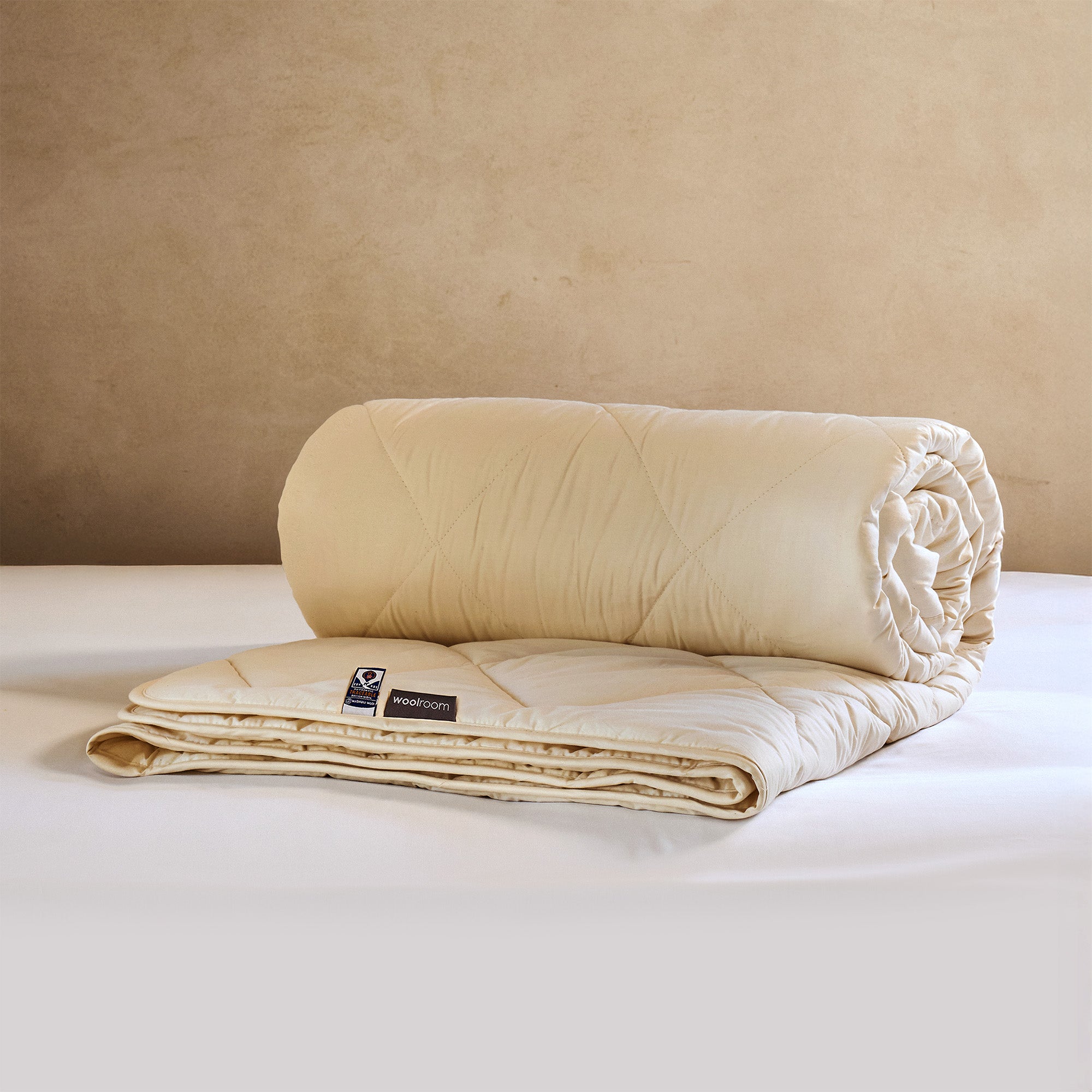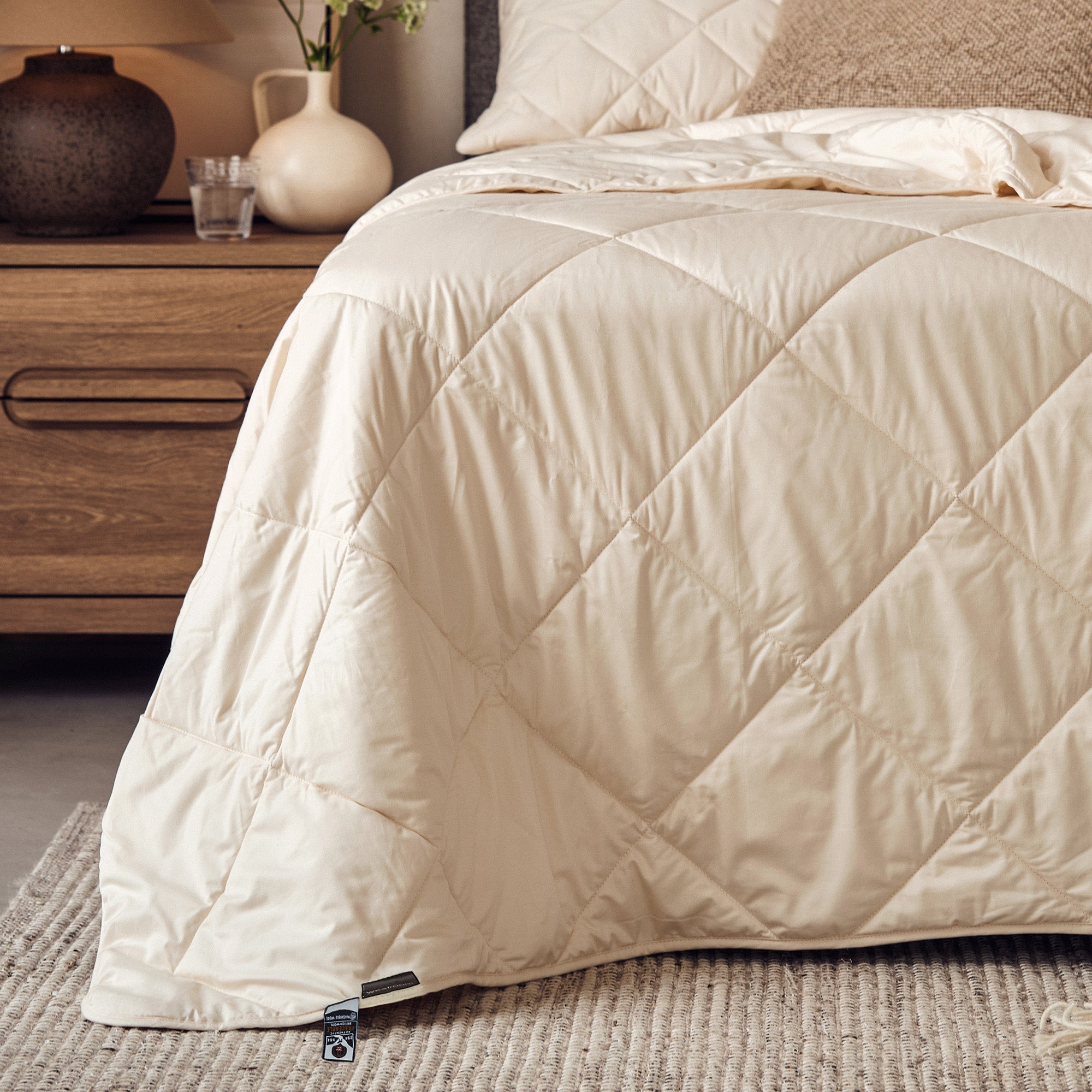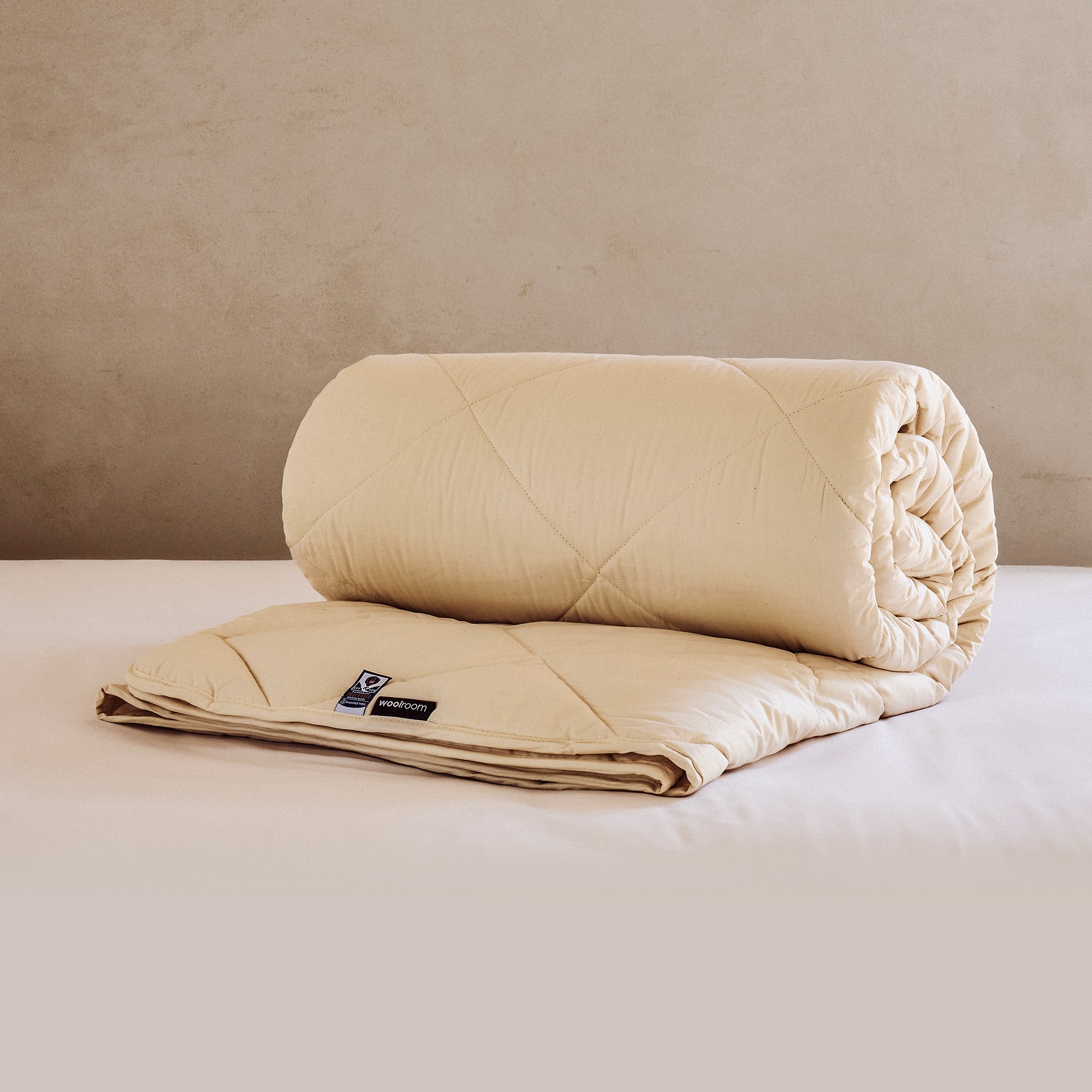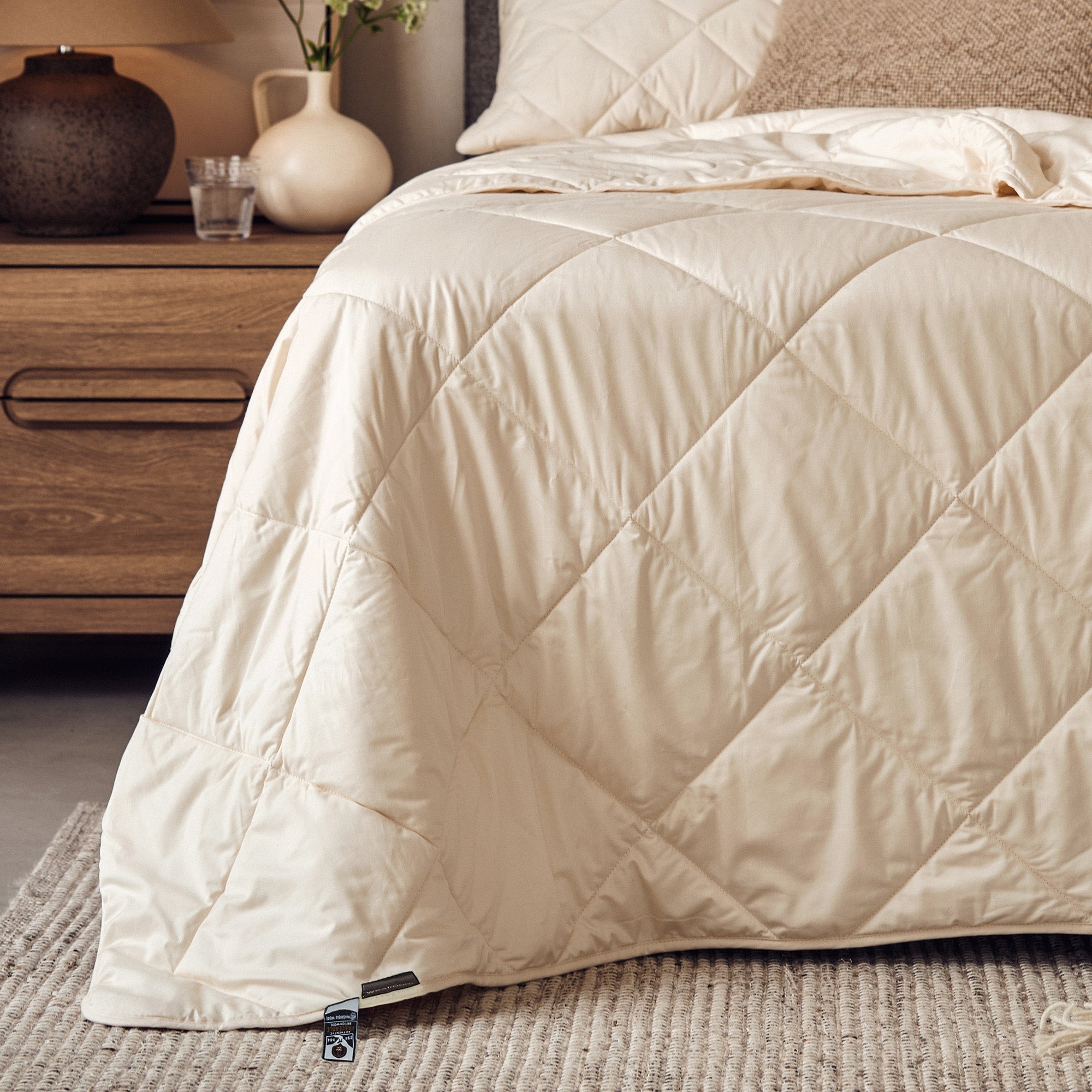Le guide ultime pour une chambre écologique avec des produits en laine
Créer une chambre écologique ne se résume pas à l'esthétique ; il s'agit de faire des choix réfléchis qui améliorent votre bien-être tout en réduisant votre empreinte environnementale. Face aux préoccupations croissantes concernant le changement climatique et la qualité de l'air intérieur, privilégier les matières et fibres naturelles comme la laine peut contribuer à un espace de vie plus sain. Ce guide explore les avantages des produits en laine et propose des conseils pratiques pour transformer votre chambre en un havre de paix durable.
Pourquoi une chambre écologique est importante
La chambre à coucher est un sanctuaire personnel où nous passons près d'un tiers de notre vie. Cependant, de nombreux matériaux conventionnels (souvent synthétiques) contribuent à la mauvaise qualité de l'air intérieur et peuvent nuire à notre santé.
Avantages d'une chambre écologique
- Meilleure qualité de l'air : Les matériaux traditionnels libèrent souvent des composés organiques volatils (COV) qui irritent les voies respiratoires. En choisissant des options écologiques, vous réduisez la quantité de toxines dans votre chambre.
- Confort amélioré : les matériaux naturels, notamment la laine, régulent la température et l'humidité, créant un environnement de sommeil plus confortable.
- Avantages pour la santé : les produits durables sont généralement exempts de produits chimiques nocifs, ce qui réduit le risque d’allergies et d’irritations cutanées.
En privilégiant une chambre écologique, vous investissez dans votre santé et contribuez à une planète plus durable.

Pourquoi choisir la laine pour votre chambre ?
La laine est une matière exceptionnelle, souvent considérée comme la fibre miracle de la nature pour tous ses bienfaits. En matière de literie et de décoration écologiques, il existe de nombreuses raisons de privilégier la laine dans sa chambre. Améliorer sa santé, améliorer son sommeil et contribuer à la protection de l'environnement n'en sont que quelques-unes.
Voici quelques bonnes raisons d’intégrer des produits en laine dans votre chambre :
Raison n°1 : la laine est à la fois naturelle et renouvelable
La laine est une fibre naturelle issue du mouton, ce qui en fait une ressource renouvelable. Contrairement aux matières synthétiques, dérivées du pétrole et contribuant à la dégradation de l'environnement, la laine est biodégradable et se décompose naturellement, enrichissant ainsi les sols.
Raison n°2 : la laine a des propriétés hypoallergéniques
La structure unique de la laine résiste aux acariens et aux moisissures, ce qui en fait un excellent choix pour les personnes allergiques. Elle évacue naturellement l'humidité, empêchant ainsi la formation de moisissures, souvent présentes dans les environnements humides.
Raison n°3 : la laine régule naturellement la température
L'une des qualités les plus remarquables de la laine est sa capacité à réguler la température. Les fibres de laine emprisonnent l'air, offrant une isolation en hiver et une respirabilité en été. Cette propriété contribue à maintenir une température de sommeil confortable toute l'année, réduisant ainsi le recours aux systèmes de chauffage et de climatisation et diminuant votre consommation d'énergie.
Raison n° 4 : la fibre de laine est produite de manière durable
Lorsqu'elle est issue de sources responsables, la production de laine a un impact environnemental moindre que les alternatives synthétiques. Privilégiez les marques qui privilégient les pratiques agricoles éthiques et l'approvisionnement durable.
L’intégration d’une literie en laine, comme des couettes et des oreillers, peut créer un environnement de sommeil confortable et plus sain qui favorise un sommeil réparateur.

5 conseils de décoration durables pour un espace plus vert
Transformer votre chambre en un havre de paix écologique peut être à la fois élégant et fonctionnel. Voici quelques conseils pour vous aider à démarrer :
Astuce 1 - Utilisez des matériaux naturels
Optez pour du linge de lit et des articles de décoration en coton, laine, bambou et lin biologiques. Ces matériaux sont non seulement biodégradables, mais aussi pauvres en produits chimiques nocifs. Pour vos meubles, privilégiez le bois issu de sources durables ou recyclé afin de minimiser votre impact environnemental.
Astuce 2 - Choisissez des meubles d'occasion
Les meubles vintage ajoutent du caractère à votre espace tout en réduisant les déchets. Les pièces en bois de haute qualité peuvent être restaurées ou réutilisées, leur donnant ainsi une nouvelle vie. Les friperies, les marchés aux puces ou les plateformes en ligne peuvent vous aider à trouver des objets uniques qui racontent une histoire.
Astuce 3 - Incorporez des plantes d'intérieur
Les plantes d'intérieur comme les plantes sansevieria, les lis de la paix et les plantes araignées améliorent la qualité de l'air en filtrant les toxines et en ajoutant une touche de nature à votre décoration. Elles créent une atmosphère apaisante tout en embellissant votre chambre.
Astuce 4 - Optez pour un éclairage basse consommation
Remplacer les ampoules traditionnelles par des LED réduit considérablement la consommation d'énergie. Associez-les à des textiles naturels, comme des plaids en laine et des oreillers en lin, pour plus de confort sans compromettre la durabilité.
Astuce 5 - Évitez la fast fashion
Lorsque vous choisissez des textiles pour votre chambre, évitez les marques de fast fashion qui privilégient les tendances au détriment du développement durable. Investissez plutôt dans des pièces de qualité et intemporelles qui dureront des années. Privilégiez les entreprises qui privilégient la production éthique et les matériaux durables.
En incorporant des matériaux naturels, des objets vintage et de la verdure, vous pouvez créer une chambre élégante et durable qui favorise le bien-être.
Avantages de la litière biologique
Adopter une literie bio est une étape importante vers une chambre plus saine. Voici pourquoi :
Un sommeil plus sain
La literie biologique est fabriquée sans produits chimiques nocifs, ce qui la rend plus sûre pour les peaux sensibles. Choisir des draps en coton biologique et des couettes en laine vous garantit un sommeil de meilleure qualité.
Avantages environnementaux
Les pratiques agricoles biologiques privilégient la santé des sols, la préservation de l'eau et la biodiversité. Le coton et la laine biologiques sont produits sans engrais ni pesticides de synthèse, préservant ainsi les écosystèmes et améliorant la qualité de l'air. Cela est non seulement bénéfique pour votre santé, mais contribue également à une planète plus saine.
Longévité et durabilité
La litière biologique est généralement de meilleure qualité, ce qui signifie qu'elle dure plus longtemps que les options conventionnelles. Investir dans des matériaux biologiques durables vous permet d'économiser de l'argent à long terme et de réduire les déchets en décharge.

Les meilleurs matériaux naturels pour votre chambre
Pour créer une chambre écologique, pensez aux matériaux naturels suivants :
100% laine biologique
La laine est renouvelable, hypoallergénique et thermorégulatrice. Les produits de literie en laine biologique , tels que les couettes , les oreillers et les surmatelas , sont non toxiques et naturellement résistants aux acariens. Privilégiez la laine certifiée biologique pour un choix durable.
Coton et lin biologiques
Le coton et le lin sont doux pour la peau et respectueux de l'environnement. Le coton biologique est cultivé sans produits chimiques nocifs, tandis que le lin, issu de la plante de lin, consomme moins d'eau et de ressources, ce qui en fait un choix durable.
Meubles en bois durables
Pour l'ameublement de votre chambre, privilégiez le bois certifié FSC ou les matériaux recyclés. Ces options sont non seulement écologiques, mais aussi durables et élégantes.
Matelas en latex naturel et fibre de coco
Les matelas en latex naturel sont fabriqués à partir de sève d'hévéa et sont exempts de produits chimiques de synthèse. La fibre de coco, issue de coques de noix de coco, offre un excellent soutien tout en étant biodégradable. Ces matelas durables favorisent un meilleur sommeil et un environnement de chambre plus sain.
La laine vaut l'investissement
Créer une chambre éco-responsable est un investissement pour votre santé et la planète. En intégrant des produits en laine et d'autres matériaux durables, vous profiterez d'un espace cosy et élégant qui favorise le bien-être tout en réduisant votre impact environnemental. Commencez par de petits changements, comme choisir de la literie bio ou réutiliser des meubles, et transformez progressivement votre chambre en un havre de paix qui reflète votre engagement envers le développement durable.
Bénéficiez des avantages d’une chambre écologique et profitez de la tranquillité d’esprit que procure le fait de faire des choix qui sont bons pour vous et pour la Terre.
Pour en savoir plus sur les avantages de la laine, les conseils en matière de literie écologique et les ressources sur la durabilité, consultez le blog Woolroom .



